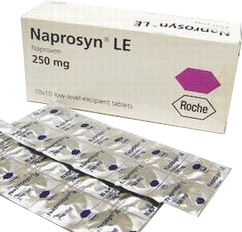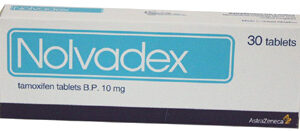Indications
Naprosyn, known generically as naproxen, is an anti-inflammatory medication that belongs to the nonsteroidal anti-inflammatory drug (NSAID) class. It alleviates pain, reduces inflammation, and lowers fever. This medication is commonly prescribed for conditions such as rheumatoid arthritis, osteoarthritis, ankylosing spondylitis, tendonitis, bursitis, gout, or menstrual cramps. It is essential for patients to use Naprosyn as directed by their healthcare provider for the stipulated conditions.
Dosage Guidelines
The dosage of Naprosyn will vary depending on patient specifics such as age, the condition being treated, and the presence of any other health issues. For adult patients dealing with conditions like arthritis, often an initial higher dosage is given, followed by a maintenance dose. It’s crucial to consult with a healthcare provider to determine the correct dosage and to never exceed the maximum recommended amount. Naprosyn can be taken with food or milk to mitigate gastrointestinal disturbances. Extended-release tablets should not be crushed or chewed.
Contraindications
Individuals who have experienced allergic reactions to naproxen or other NSAIDs should abstain from using Naprosyn. It is also contraindicated for patients with a history of asthma, urticaria, or allergic-type reactions after taking aspirin or other NSAIDs. Severe, potentially fatal anaphylactic reactions to NSAIDs have been reported in such patients. Naprosyn is contraindicated for the treatment of perioperative pain in the setting of coronary artery bypass graft (CABG) surgery as well. It should not be used in the setting of coronary artery bypass graft (CABG) surgery.
Interactions
Certain medications may interact with Naprosyn, affecting its efficacy or leading to adverse effects. For instance, concurrent use with anticoagulants can increase the risk of bleeding, while use with other NSAIDs or corticosteroids can raise the chance of gastrointestinal ulcers or bleed. Combining Naprosyn with some antidepressants, blood pressure medications, or diuretics may alter their effects. Always disclose all drugs, including over-the-counter medications and supplements, to a healthcare provider to prevent unfavorable interactions.
Possible Adverse Effects
Naprosyn, like other NSAIDs, can lead to side effects. Frequent ones include gastrointestinal discomfort, heartburn, headache, dizziness, and a ringing sensation in the ears. More severe reactions could involve gastrointestinal bleeding, high blood pressure, kidney problems, and heart issues such as heart attack or stroke. Ensuring regular medical follow-ups while undergoing treatment with Naprosyn can aid in monitoring and managing side effects.
Safety Measures
Patients should exercise caution when taking Naprosyn, particularly if they have a history of heart disease, hypertension, liver or kidney disease, have a bleeding or clotting disorder, or if they are smokers. The elderly may be at a higher risk of experiencing side effects. Consuming alcohol can augment the risk of stomach bleeding. It is advisable to avoid exposure to sunlight or artificial UV rays, as naproxen can make the skin more sensitive to sunlight.
Managing Overdose
In the event of an overdose, immediate medical attention is crucial. Symptoms of an overdose can include sleepiness, heartburn, indigestion, nausea or vomiting, and more severe effects like gastrointestinal bleeding or high blood pressure. Supportive measures will be taken to address any symptoms, and specific treatments like activated charcoal or gastric lavage may be employed to prevent further absorption of the medication.
Patient Counseling
Healthcare providers should offer comprehensive guidance to patients about using Naprosyn. This includes understanding the correct dosage, potential side effects, the importance of not sharing medication with others, and what to do in case a dose is skipped. Patients should be aware of the signs of serious side effects, including chest pain, shortness of breath, weakness on one side of the body, slurred speech, or vision changes and seek immediate medical attention if they occur.
Storage Instructions
Naprosyn must be stored at room temperature, away from moisture and heat. It should be kept out of reach of children. Any expired or no longer needed medication should be disposed of properly. Patients should consult with their pharmacist or local waste disposal company to determine the safe disposal method.
Pharmacological Details
The nonsteroidal anti-inflammatory properties of Naprosyn are attributed to its ability to inhibit the enzyme cyclooxygenase (COX), which is responsible for the synthesis of prostaglandins that promote inflammation, pain, and fever. This inhibition leads to a decrease in the systemic signs of inflammation. However, COX inhibition can also impact the protective lining of the stomach, elucidating the gastrointestinal risks associated with Naprosyn and other NSAIDs.
Pharmacokinetic Properties
Naprosyn demonstrates rapid absorption from the gastrointestinal tract following oral administration. It binds extensively to plasma proteins and exhibits a biotransformation through the liver. Excretion occurs primarily through the urine as both unchanged drug and metabolites. The half-life of Naprosyn in the bloodstream ranges, and the medicine is offered in both immediate-release and extended-release formulations, tailoring the release of the active ingredient to meet individual patient needs. Applying this knowledge allows for the optimization of therapeutic strategies when administering Naprosyn. Regular monitoring of drug plasma levels might also be necessary to adjust dosages and prevent toxicity.
Understanding the usage, administration, and safety profile of Naprosyn is crucial for patients and healthcare providers alike to ensure the benefits of the medication are maximized, while the risks are minimized. Regular consultations with healthcare professionals are advisable to address any concerns regarding Naprosyn treatment.





Reviews
There are no reviews yet.